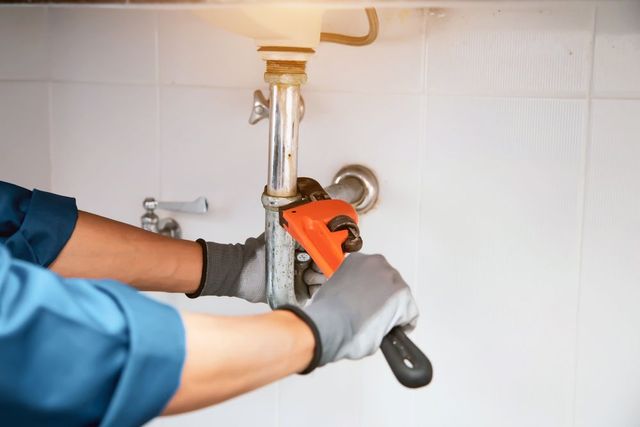Important Bathroom Plumbing Tips for First-Time Homeowners
Important Bathroom Plumbing Tips for First-Time Homeowners
Blog Article
Presented here in the next paragraphs you can find a bunch of superb expertise involving Plumbing Tips for New Homeowners.

For new property owners, understanding and preserving bathroom plumbing can conserve both money and time by protecting against pricey concerns down the line. Here are some essential bathroom pipes ideas to assist you keep every little thing running smoothly.
Get Ready For Cold Weather
Safeguard your pipes from cold during cold weather by shielding pipelines in unheated areas like basements, attics, and garages. During severe cold, let cold water drip from faucets served by exposed pipes to aid protect against freezing.
Schedule Normal Upkeep
Consider scheduling annual inspections with a certified plumber. They can spot problems that you could miss, such as concealed leaks or damage on pipelines and components. Regular maintenance helps prolong the life of your pipes system and can protect against emergency situations.
Acquaint Yourself with the Key Shut-Off Shutoff
Knowing where the major water shut-off shutoff lies in your house is essential. This allows you to rapidly turn off the water system in case of major leakages or throughout pipes emergency situations, stopping extensive water damages.
Frequently Inspect for Leakages
Small leaks can bring about huge problems. Frequently check under sinks, around commodes, and near plumbing components for any indicators of leaks. Search for moisture, small drips, or rust. Capturing and repairing leaks early can protect against much more significant damage and save water.
Keep Your Hot Water Heater
Ensure your hot water heater is set to an appropriate temperature level (usually around 120 levels Fahrenheit) to avoid scalding and minimize power use. Flush the container yearly to get rid of debris build-up, which can minimize the performance and lifespan of your heater.
Upgrade Your Components
If your home has older components, think about upgrading to much more reliable designs. Modern bathrooms, showerheads, and faucets are created to make use of less water while supplying great pressure, which can substantially lower your water costs and ecological footprint.
Beware with Do It Yourself Pipes Repair Works
While it's tempting to manage all home repair work by yourself, be cautious with pipes. Some issues could require expert experience, particularly if they include major water lines or drain fixings. Hiring a specialist can often be much more economical than DIY, specifically if it avoids additional damages.
Don't Overlook Slow Drains Pipes
If your sink or bath tub is draining pipes slowly, it's frequently a sign of a blockage creating. Addressing this early can prevent a complete obstruction. Use a plunger or a plumbing technician's serpent to remove particles. Prevent using chemical drain cleansers as they can damage your pipelines over time.
Know What Not to Flush
Commodes are not waste disposal unit. Prevent flushing anything other than toilet paper and human waste. Things like wipes, feminine health products, and cotton bud must be thrown away in the trash to stop clogs and sewer backups.
Mount Strainers in Drains
Place strainers in your sink and bath tub drains pipes to catch hair and various other debris prior to they enter your pipes system. Cleaning the filters consistently will assist stop accumulation and maintain water moving freely.
Conclusion
Understanding and preserving your home's restroom plumbing can stop numerous usual concerns. By adhering to these important ideas, you can guarantee your washroom continues to be useful and reliable, conserving you money and time over time.
Essential Plumbing Tips for Homeowners: Keep Your Pipes Flowing Smoothly
As a homeowner, understanding the basics of your plumbing system can save you time, money, and a lot of headaches. Plumbing issues can range from minor annoyances like dripping faucets to major problems like burst pipes that cause significant damage. This guide provides essential tips to help you maintain your plumbing system and tackle common issues.
Understanding Your Plumbing System
Supply System: Brings fresh water into your home from a municipal source or a well. Drain-Waste-Vent System: Removes wastewater and vents sewer gases outside. Fixtures and Appliances: Includes sinks, toilets, showers, dishwashers, and washing machines. Basic Maintenance Tips
Regular Inspections: Periodically check for leaks, corrosion, and other signs of wear and tear. Look under sinks, around toilets, and near water heaters. Know Your Main Shut-Off Valve: In case of a major leak, you’ll need to shut off the water quickly. Ensure everyone in your household knows where the main shut-off valve is located. Prevent Frozen Pipes: In cold climates, insulate exposed pipes and let faucets drip during extreme cold to prevent freezing. Use Strainers: Install strainers in sinks and tubs to catch hair, food particles, and other debris that can cause clogs. Common Plumbing Issues and Solutions
Clogged Drains:
Prevention: Avoid pouring grease down the drain and use drain screens to catch debris. DIY Fix: Use a plunger or a plumbing snake to clear minor clogs. For stubborn clogs, a mixture of baking soda and vinegar can sometimes help. Leaky Faucets:
Prevention: Replace washers and seals regularly. DIY Fix: Turn off the water supply, disassemble the faucet, and replace worn parts.

Call Today Report this page